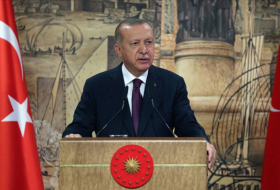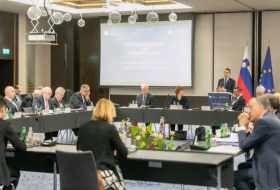DOESN’T NEED TO WIN THE POPULAR VOTE
Najib’s coalition failed to win the popular vote at the last election in 2013 – it received 47.3 percent support - but because of the first-past-the-post parliamentary system and the way electoral boundaries are drawn it still managed to easily win a majority of the seats in parliament.
SHIFTING OF ELECTORAL BOUNDARIES
In late March, parliament agreed to redraw parliamentary and state boundaries amid accusations of “gerrymandering” from the opposition. The redrawing – effective in this election - exacerbates a system that favors Najib’s party, the United Malay National Organisation (UNMO), as it has more support in rural areas than the big cities. The 30 percent of Malaysia’s population that lives in rural areas controls more than half the seats in parliament.
OPPOSITION WARINESS OF MAHATHIR
The opposition is struggling to present a united front. Mahathir, 92, has helped create some cohesion in the Pakatan Harapan opposition alliance as its chairman, but there are many in the opposition who are suspicious of him because of his attacks on independent institutions when he was the nation’s leader between 1981 and 2003.
Also possibly Najib’s most formidable opponent, former deputy prime minister and finance minister Anwar Ibrahim is currently serving a five-year prison sentence on a sodomy conviction that has been attacked by human rights groups as politically motivated. Anwar had been the leading figure in the opposition in the 2008 and 2013 elections. He has joined Mahathir in forming a new opposition coalition but his imprisonment robs it of a crucial leader and election campaigner. Anwar is expected to be released from jail soon after the election.
HARDLINE ISLAMISTS COULD SPLIT OPPOSITION VOTE
The Pan-Malaysian Islamic Party (PAS), which was previously part of the opposition coalition, has now split off on its own and will be standing in more seats in this election. That means the opposition vote will be split giving Najib a better chance of coming out on top.
GOVERNMENT PASSES “FAKE NEWS” LAW
Last week the Najib government passed a draconian “fake news” law, which could be used to attack the opposition during the election campaign. It defines “fake news” very broadly as “any news, information, data and reports, which is or are wholly or partly false, whether in the form of features, visuals or audio recordings or in any other form capable of suggesting words or ideas.” The maximum sentence under the law is a fine of 500,000 ringgit ($129,300) and/or a six-year prison sentence. The ruling coalition had already effectively cowed any independent local media through the use of a broad set of laws, such as the colonial era Sedition Act.
BUOYANT ECONOMY
Malaysia’s economy has been growing robustly. In its recently released annual report, the nation’s central bank, Bank Negara Malaysia, forecast the economy will grow at a 5.5-6 percent rate in 2018, up from 5-5.5 percent the government had forecast in its annual budget in October last year. Malaysia has enjoyed an export boom, while public spending on infrastructure gave an extra fillip to gross domestic product which was up 5.9 percent in 2017 - its best in three years.
PATRONAGE AND MONEY
Najib’s UMNO operates an affirmative action policy for the majority ethnic-Malays that gives them government contracts, cheap housing, guaranteed university admissions and preferential stock shares in return for their allegiance. Only last week, he promised to provide salary hikes for Malaysia’s civil servants, a key part of his support base.
ELECTION PROMISES
The ruling coalition has made a raft of election promises to appeal to its traditional base of supporters, including raising the minimum wage, and increased cash benefits targeting rural ethnic Malays. He also promised to erase the debts of Malay farmers related to a state plantation company, and to create 3 million new jobs.
REUTERS
More about: Malaysia








-1523357107.jpg)







































